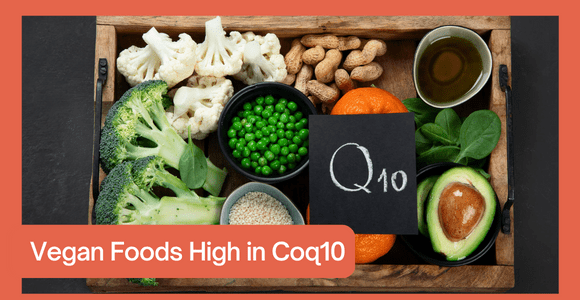CoQ10, also known as ubiquinone or Coenzyme Q10, is a naturally occurring compound that plays an essential part in the production of energy at the cellular level. It can be found inside mitochondria – cells’ powerhouses – and has a key role in creating adenosine triphosphate (ATP), otherwise known as our body’s primary source of energy.
CoQ10 is an incredible antioxidant that shields the body’s cells from harmful free radicals. Not only does it protect against these molecules, but CoQ10 also helps neutralize them so they can’t cause any more devastation. Besides its role in energy production and as a powerful antioxidant, research has proven that CoQ10 may have many other benefits such as aiding heart healthiness, encouraging fertility, and reducing signs of aging on the skin too!
CoQ10 concentrations in our bodies deplete as we grow older, and can be further weakened by medical issues like heart disease or the use of specific drugs such as statins. This decrease in CoQ10 levels has the potential to result in a drop in energy production and an uptick in oxidative stress – this is where supplementation with CoQ10 may come into play for certain individuals.
Table of Contents
Importance of CoQ10 in the human body
CoQ10 is an integral part of the human body, offering numerous benefits that cannot be ignored.
Here are some of its main functions and benefits:
- CoQ10 is critical for generating energy in our cells by producing ATP. This means it helps maintain a consistent level of energy throughout your body, providing tremendous benefits to those who frequently feel tired or have low energy levels.
- Maintaining optimal heart health is essential, and CoQ10 can help. Studies have confirmed this nutrient’s capability to lower blood pressure, reduce the chance of developing heart disease, and mitigate damage resulting from cardiac arrest. Furthermore, it helps inhibit inflammation—an important factor in managing cardiovascular issues.
- CoQ10 is an antioxidant powerhouse providing the body with unbeatable protection from free radicals, which can contribute to severe illnesses such as cancer and Alzheimer’s. Through its potent antioxidative properties, CoQ10 helps shield your cells as you age for optimal health.
- Fertility: CoQ10 has a strong relation with successful procreation, as research shows it is essential for sperm and egg health. In men, taking CoQ10 can significantly improve their fertility by raising both the quantity and quality of sperm; in women, it can enhance ovarian functions to increase the chances of conception.
- Estrogen is a vital hormone for female reproductive health, and vegans can take advantage of foods containing phytoestrogens like soy to maintain healthy estrogen levels. Furthermore, Coenzyme Q10 (COQ10) or ubiquinone exists in plant-based products such as nuts, seeds, and grains; however, the amounts are limited. If you’re looking to increase your daily intake of COQ10 – an essential compound that promotes energy production and acts as an antioxidant protector – it’s best to supplement with vegan sources.
These are just some of the important functions and benefits of CoQ10 in the human body, and research is ongoing to further understand its potential effects and possible uses. It’s important to note that more research is needed to confirm these benefits, but CoQ10 has been shown to be safe and effective in many studies.
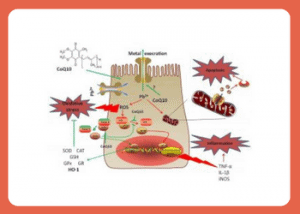 It is difficult to obtain adequate amounts of CoQ10 through diet alone as it can only be found in small concentrations within certain foods. Fortunately, there are plenty of delicious sources from which you can reap the benefits: fatty fish such as salmon and sardines, organ meats like liver and heart, peanuts, spinach, broccoli, and whole grains all contain abundant levels of CoQ10! Despite a healthy diet full of CoQ10-rich foods, it can be difficult to obtain optimal levels of this essential nutrient.
It is difficult to obtain adequate amounts of CoQ10 through diet alone as it can only be found in small concentrations within certain foods. Fortunately, there are plenty of delicious sources from which you can reap the benefits: fatty fish such as salmon and sardines, organ meats like liver and heart, peanuts, spinach, broccoli, and whole grains all contain abundant levels of CoQ10! Despite a healthy diet full of CoQ10-rich foods, it can be difficult to obtain optimal levels of this essential nutrient.
The quantity of CoQ10 in food items can range from one to the other, and be impacted by how it is cooked or processed. Sadly, some cooking methods such as grilling, boiling, and frying may diminish its presence. Furthermore, many foods that contain high levels of this compound are also loaded with cholesterol and saturated fat, which might not be a good choice for certain individuals. Plant-based sources do not offer an equivalent amount compared to animal-based ones meaning vegetarians/vegans have more difficulty consuming adequate amounts.
Despite these restrictions, many choose to take CoQ10 supplements as a way of reaching maximum levels. These can come in capsules, tablets, and creams: the best option for you should be discussed with your healthcare provider or dietitian though to guarantee dose accuracy.
The Importance of CoQ10 for Vegans
CoQ10 is important for everyone, but it may be particularly important for vegans and vegetarians to ensure they are getting enough of this nutrient. The main dietary sources of CoQ10 are animal-based, which means that vegans and vegetarians may not be consuming enough CoQ10 through their diet alone.
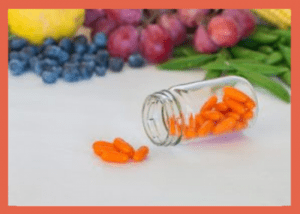 Vegans and vegetarians are at a higher risk of CoQ10 deficiency because they don’t consume animal-based products, which are typically the most concentrated source of CoQ10, such as organ meats (heart, liver), and fatty fish (salmon, sardines, mackerel). Some vegan and vegetarian-friendly sources of CoQ10 include spinach, broccoli, nuts, and whole grains, but the quantity of these plant-based sources is not as high as animal-based sources.
Vegans and vegetarians are at a higher risk of CoQ10 deficiency because they don’t consume animal-based products, which are typically the most concentrated source of CoQ10, such as organ meats (heart, liver), and fatty fish (salmon, sardines, mackerel). Some vegan and vegetarian-friendly sources of CoQ10 include spinach, broccoli, nuts, and whole grains, but the quantity of these plant-based sources is not as high as animal-based sources.
CoQ10 deficiency can lead to lower energy levels, poor heart health, and a weakened immune system. Vegans and vegetarians may also be at a higher risk of developing certain chronic diseases such as cancer, diabetes, and heart disease, which is why it’s important to consume enough CoQ10.
Vegan and vegetarian-friendly CoQ10 supplements, such as those made from fermented yeast, are available and can be a great way for vegans and vegetarians to ensure they are getting enough of this essential nutrient. However, it is important to consult with a healthcare professional or registered dietitian to determine the best option for you and to ensure proper dosage.
Explanation of the challenge of getting enough CoQ10 on a vegan diet
Getting enough CoQ10 on a vegan diet can be a challenge for several reasons. As mentioned earlier, the main dietary sources of CoQ10 are animal-based, including fatty fish and organ meats, which are not typically consumed by vegans. While some plant-based foods, such as spinach, broccoli, nuts, and whole grains, also contain small amounts of CoQ10, the quantity in these foods is not as high as in animal-based sources.
Another challenge is that CoQ10 can be sensitive to cooking methods, meaning that it can be lost during the preparation and processing of foods. For example, frying, grilling, and boiling can cause a significant loss of CoQ10, meaning that even if a vegan diet includes foods that contain CoQ10, they may not be getting enough of it due to how it is being prepared.
Furthermore, some vegan and vegetarian-friendly sources of CoQ10 may also be high in cholesterol and saturated fat, which can be a concern for some people.
As a result of these challenges, vegans may need to take CoQ10 supplements to reach optimal levels. However, it is essential to note that these supplement sources may not be animal-free. It’s important for vegans to consult with a healthcare professional or registered dietitian to determine the best option for them and to ensure proper dosage.
The potential health implications of low CoQ10 levels for vegans
Low levels of CoQ10 in the body can have a variety of potential health implications, particularly for vegans. Since CoQ10 is an important antioxidant and plays a vital role in energy production in the cells, a deficiency in CoQ10 can lead to a number of health problems.
Some of the potential health implications of low CoQ10 levels for vegans include:
- Fatigue and low energy levels: CoQ10 is important for energy production in the cells, and a deficiency can lead to fatigue and low energy levels.
- Heart health: CoQ10 plays a role in maintaining heart health by supporting proper cardiovascular function. Low levels of CoQ10 may increase the risk of heart disease.
- Immune function: CoQ10 plays a role in maintaining a healthy immune system, and low levels of CoQ10 may make the body more susceptible to infections and illnesses.
- Neurological health: CoQ10 is important for maintaining proper neurological function and low levels may contribute to the development of neurodegenerative disorders such as Parkinson’s disease.
- Skin health: CoQ10 is important for skin health and is a key component of the skin’s natural antioxidant defense. Low levels of CoQ10 may lead to premature aging and wrinkles.
It’s important for vegans to be aware of the potential health implications of low CoQ10 levels and to work with a healthcare professional or registered dietitian to determine the best way to ensure optimal CoQ10 levels, whether through diet or supplements.
The importance of CoQ10 for vegans especially for vegans who practice sports or high-intensity exercises.
CoQ10 is important for vegans who practice sports or engage in high-intensity exercises for several reasons. The primary reason is that CoQ10 plays a vital role in energy production in the cells, and it is particularly important for athletes and individuals who engage in high-intensity exercises.
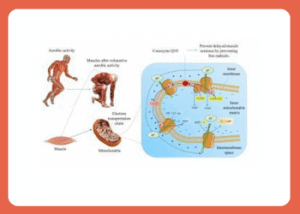 During high-intensity exercises, the body’s demand for energy increases, and the cell’s mitochondria (the powerhouses of the cells) work harder to produce that energy. CoQ10 is an essential component in the process of energy production in the cells, as it acts as an electron carrier in the energy-producing reactions within the mitochondria.
During high-intensity exercises, the body’s demand for energy increases, and the cell’s mitochondria (the powerhouses of the cells) work harder to produce that energy. CoQ10 is an essential component in the process of energy production in the cells, as it acts as an electron carrier in the energy-producing reactions within the mitochondria.
Low CoQ10 levels in the body may result in decreased energy production and may lead to fatigue and muscle pain, which can negatively impact sports performance.
Additionally, high-intensity exercises also create a lot of free radicals in the body, which can lead to oxidative stress, which can be damaging to cells. CoQ10 acts as an antioxidant and helps to reduce the damage caused by these free radicals.
Moreover, CoQ10 plays a role in the cardiovascular system and could help to improve cardiovascular fitness in athletes, which is beneficial for endurance sports.
Therefore, vegans who practice sports or engage in high-intensity exercises are at risk of a CoQ10 deficiency and might consider taking CoQ10 supplements, however, it is important to consult with a healthcare professional or registered dietitian to determine the best option for them and to ensure proper dosage.
Vegan Foods High in CoQ10
While the main dietary sources of CoQ10 are animal-based, there are some plant-based foods that can provide a moderate amount of this important nutrient. Here are some examples of vegan foods high in CoQ10:
| Food | Description |
|---|---|
| Spinach | Spinach is a leafy green vegetable that is high in antioxidants and CoQ10. It can be eaten raw in salads or cooked as a side dish. |
| Broccoli | Broccoli is a cruciferous vegetable that is high in CoQ10, vitamin C, and other antioxidants. It can be steamed, roasted, or added to soups and stews. |
| Spinach | Spinach is a leafy green vegetable that is high in antioxidants and CoQ10. It can be eaten raw in salads or cooked as a side dish. |
| Avocado | Avocados are a great source of healthy fats, as well as a good source of CoQ10. They can be mashed into guacamole, added to sandwiches or eaten as a snack with a sprinkle of sea salt. |
| Legumes | Legumes such as lentils, soybeans, kidney beans, and black-eyed peas are high in CoQ10 and are a great source of plant-based protein. They can be used in a variety of dishes such as soups, stews, and salads. |
| Berries | Berries such as blackberries, blueberries, raspberries, and strawberries are rich in CoQ10 as well as other antioxidants. They can be eaten as a snack or added to yogurt, cereal, or smoothies. |
| Nuts | Nuts such as almonds, hazelnuts, and peanuts are high in CoQ10 and healthy fats. They can be eaten as a snack or added to salads and grain dishes. |
| Seeds | Seeds such as sunflower seeds, pumpkin seeds, and sesame seeds are great sources of CoQ10 and other nutrients. They can be eaten as a snack or added to salads and grain dishes. |
Notably, the cooking methods used can have a substantial effect on how much CoQ10 you obtain from these food items. Boiling, frying, and grilling can cause dramatic reductions in CoQ10 content, so it’s advisable to consume such foods in their natural state or steamed. Furthermore, as vegan sources of CoQ10 may be rich in cholesterol and saturated fat that could possibly raise concerns for some people – extra caution is encouraged when consuming them.
Additionally, the CoQ10 concentrations found in these vegan sources may not be able to meet optimal levels for some individuals. Consequently, dietary supplementation of this nutrient might become necessary. It is recommended that you first seek advice from a qualified healthcare professional or registered dietitian before beginning any supplement regimen and establishing proper dosage requirements.
How to Incorporate CoQ10-rich Foods into a Vegan Diet
Incorporating CoQ10-rich foods into a vegan diet can be easy and delicious. Here are a few tips to help you add more CoQ10 to your vegan diet:
- Use spinach in salads, smoothies, and as a topping for sandwiches and pizzas. Spinach is a versatile leafy green that can be eaten raw or cooked.
- Use broccoli in soups, stews, and stir-fries. It can also be eaten raw, which is a great way to increase the CoQ10 content.
- Add nuts and seeds to your meals. You can add them to your cereal, yogurt, and salad or use them as a snack.
- Incorporate whole grains such as brown rice, barley, and quinoa into your meals. They can be used in soups, stews, and salads.
- Use legumes such as lentils and soybeans in soups, stews, and as a base for veggie burgers.
- Incorporate sesame, pumpkin, and sunflower seeds in your cooking and baking, you can also sprinkle them on top of your meals as a garnish.
- Cook vegan CoQ10-rich foods with steaming, baking, or roasting to prevent the loss of nutrients.
To ensure that you receive all the CoQ10 your body needs, even while following a vegan diet, incorporate these foods into your meals. But always talk to your healthcare provider or registered dietitian before taking any supplements – they will help determine what dosage is right for you and advise on other nutritional concerns. Of course, it’s essential to remember that a healthy and balanced eating plan should include an array of vitamins and minerals from various sources.
Suggestions for adding CoQ10-rich foods to meals and snacks
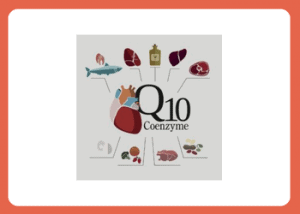 Here are some suggestions for adding CoQ10-rich foods to meals and snacks:
Here are some suggestions for adding CoQ10-rich foods to meals and snacks:
- Spinach and Broccoli Salad: Mix a handful of raw spinach and broccoli florets with your favorite dressing.
- Spinach and Almond Butter Smoothie: Blend spinach, almond butter, and your favorite fruit (banana, berries, etc) into a smoothie, providing a great dose of CoQ10 as well as healthy fats, and antioxidants from the fruit.
- Nut and Seed Mix: Mix together almonds, walnuts, sesame seeds, pumpkin seeds, and sunflower seeds for a healthy and delicious snack that’s high in CoQ10.
- Whole Grain Bowl: Cook brown rice, barley, or quinoa and mix it with your favorite veggies, nuts, and seeds for a balanced and CoQ10-rich meal.
- Lentil or Soybean Soup: Make a hearty and warming soup using lentils or soybeans as the base and add CoQ10-rich veggies such as broccoli and spinach.
- Vegan veggie burger: Mix cooked lentils, quinoa, soybeans, and a variety of herbs, spices, and veggies to make a delicious and nutritious CoQ10-rich veggie burger.
- Sesame, sunflower, and pumpkin seed garnish: Sprinkle them on top of your meals as a garnish to increase their CoQ10 content, they are also rich in other nutrients and can add a delicious crunch to your meals.
- Whole grain crackers or bread: Make your own whole grain crackers or bread using flax seeds, sesame, sunflower, and pumpkin seeds, and pair it with a CoQ10-rich food such as spinach or broccoli.
By incorporating CoQ10-rich foods into your meals and snacks in these ways, you can help ensure that you’re getting enough CoQ10 while still enjoying delicious and satisfying foods.
Recipe ideas for CoQ10-rich vegan dishes
Here are some recipe ideas for CoQ10-rich vegan dishes:
Spinach and Mushroom Quinoa: Cook quinoa according to package instructions, sauté sliced mushrooms and garlic until tender, then add a handful of spinach and stir until wilted. Mix everything together, season with salt and pepper, and top with a sprinkle of pumpkin and sesame seeds.
- Lentil and Broccoli Stew: In a pot sauté onion and garlic then add diced carrots, broccoli florets, and lentils. Pour in vegetable broth, bring to a boil, then reduce the heat and simmer until the lentils are tender. Season with your favorite herbs and spices.
- Vegan Spinach and Tofu Lasagna: Cook lasagna pasta according to package instructions, then assemble it by layering pasta, spinach, and tofu. Cover it with a CoQ10-rich tomato sauce and bake it until bubbly.
- Broccoli, Almond, and Sesame Stir Fry: Sauté garlic and sliced onion in sesame oil, add sliced broccoli florets and stir fry for a few minutes. Add sliced tofu and a handful of sliced almonds. Add soy sauce and cook for another minute.
- Quinoa and Black Bean Salad: Cook quinoa according to package instructions, then mix it with black beans, diced tomatoes, chopped cilantro, lime juice, and olive oil. Add a sprinkle of pumpkin and sunflower seeds on top.
- Spinach and Chickpea Curry: Cook onion and garlic in oil, add diced tomatoes, chickpeas, and spinach, season with your favorite curry powder, and simmer for 15 minutes. Serve it over brown rice.
- Raw Broccoli and Almond Butter Soup: Blend raw broccoli florets, almond butter, and coconut milk with some water. You can add your favorite seasonings such as garlic, ginger, and salt to taste.
These recipes offer a variety of delicious and easy ways to incorporate CoQ10-rich foods into your vegan diet, and you can also adjust them to your preference and dietary restriction.
Recap of the importance of CoQ10 for vegans
Vegans should pay extra attention to their Coenzyme Q10 (CoQ10) intake, as this vital antioxidant is mainly derived from animal-based foods. Not only does CoQ10 aid with energy production in the body, but it also offers multiple health advantages such as promoting cardiovascular and skin well-being.
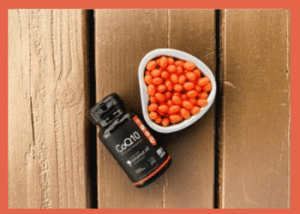
Consequently, vegans may find they lack sufficient amounts of this essential nutrient within their diets alone; thus making supplementing with a quality source of CoQ10 inevitable for optimal health benefits.
Some vegan-friendly food sources of CoQ10 include spinach, broccoli, sesame seeds, sunflower seeds, pumpkin seeds, almonds, and soybeans.
These foods are high in CoQ10 and make a great addition to a vegan diet. Incorporating CoQ10-rich foods into meals and snacks such as using spinach and broccoli in salads, soups, stir-fries, pasta, or grain bowls, or adding nuts and seeds as garnishes or ingredients in recipes can help ensure that you’re getting enough of this important nutrient. You may also get a good amount of other nutrients this way.
Vegans, especially those who practice sports or high-intensity exercises, need to pay extra attention to their CoQ10 levels, as CoQ10 can be beneficial for energy production, endurance, and muscle recovery. It is also essential for those who are pregnant or plan to be, as studies have shown that CoQ10 supplementation may improve fertility.
Additionally, CoQ10 supplements are also available, but before taking it is important to talk to a healthcare professional about the right dosage and safety for you.
Frequently Asked Questions
How Do Vegans Get CoQ10?
Vegans obtain coenzymes through plant-based dietary sources and/or supplementation. CoQ10 is a vital antioxidant and a key component of the electron transport chain, playing a crucial role in cellular energy production.
Plant-based sources rich in coenzymes include soybeans, broccoli, spinach, peanuts, and whole grains like rice and oats. Incorporating these foods into a well-balanced vegan diet can help ensure an adequate intake of CoQ10.
However, it is important to note that the amount of CoQ10 in plant-based foods may be lower than in animal-derived sources. Therefore, some vegans may choose to supplement their diet with CoQ10 to ensure sufficient levels.
Supplementation options range from coenzyme capsules to ubiquinol supplements, which is the reduced form of CoQ10 and often considered more readily absorbable by the body. Always consult with a healthcare professional before starting any supplementation regimen, as individual needs may vary.
By combining a variety of CoQ10-rich plant foods and, if necessary, using appropriate supplements, vegans can maintain optimal coenzyme levels, supporting their overall health and energy metabolism.
How Much CoQ10 Should I Take?
Determining the appropriate Coenzyme dosage depends on various factors, including age, health status, and specific health goals. It is crucial to consult with a qualified healthcare professional before starting any supplementation regimen to receive personalized recommendations.
For general adult use, a typical recommended daily dose of Coenzyme ranges from 100 to 200 milligrams. However, some individuals may require higher doses based on their specific health conditions or as advised by their healthcare provider.
CoQ 10 is available in different forms, such as ubiquinone and ubiquinol. Ubiquinol, the reduced form of CoQ10, is often considered more bioavailable and may be preferred for certain individuals, especially those over 40 or with absorption issues.
Dosages for children and adolescents should be determined by a pediatrician based on their age and health status. Pregnant or breastfeeding individuals should also seek professional advice before using CoQ 10 supplements.
Remember that Coenzymes can interact with certain medications, so it’s crucial to inform your healthcare provider about any medications you are taking to avoid potential drug interactions.
In summary, the appropriate CoQ 10 dosage varies based on individual needs and health conditions. Consulting a healthcare professional will ensure you receive the most suitable and safe dose, optimizing the potential benefits of CoQ10 supplementation for your overall well-being.
Summary of the top vegan foods high in CoQ10
CoQ10, also known as Coenzyme Q10, is an essential nutrient that plays a vital role in the human body. It is particularly important for vegans, as most dietary sources of CoQ10 are animal-based. However, there are several vegan-friendly foods that are high in CoQ10 and can help vegans meet their daily needs.
Some of the top vegan foods high in CoQ10 include:
- Spinach: Spinach is one of the most CoQ10-rich leafy greens, containing approximately 2.8mg per 100g. It can be eaten raw in salads, sandwiches, or smoothies, or cooked in a variety of dishes.
- Broccoli: This cruciferous vegetable is also high in CoQ10, with around 2mg per 100g. It can be eaten raw or cooked in a variety of dishes.
- Sesame seeds: Sesame seeds are a great source of CoQ10, with around 1.7mg per 100g. They can be eaten as is, added to recipes, or made into a paste (tahini).
- Sunflower seeds: Another great source of CoQ10, sunflower seeds contain about 1.7mg per 100g. They can be eaten as a snack, added to recipes, or used to make sunflower seed butter.
- Pumpkin seeds: Pumpkin seeds are also high in CoQ10, with around 1.6mg per 100g. They can be eaten as a snack, added to recipes, or used to make pumpkin seed butter.
- Almonds: Almonds are another great source of CoQ10, with around 1mg per 100g. They can be eaten as a snack, added to recipes, or used to make almond butter.
- Soybeans: Soybeans, whether in the form of tofu, tempeh, edamame, or soy milk, contain a good amount of CoQ10, about 0.6mg per 100g.
These foods are not only high in CoQ10 but also are good sources of other important nutrients and can be incorporated in different ways in your diet to get a good balance.
References
“Coenzyme Q10: the spark that lights the fire” by Cranton EM, Frishman WH.
“Coenzyme Q10: an overview” by Mortensen SA.
“Dietary supplementation with coenzyme Q10 results in increased levels of ubiquinol-10 within circulating lipoproteins and improved cardiovascular health” by Rundek T, Naini A, Sacco RL, et al.
“Coenzyme Q10 in health and disease” by Ernster L, Dallner G.
“Coenzyme Q10: absorption, tissue uptake, metabolism and pharmacokinetics” by Ek J, Dallner G.
“Coenzyme Q10: antioxidant properties, biochemistry, and potential therapeutic applications” by Dhanasekaran M, Raju S.
“Coenzyme Q10 and exercise” by Rosenfeldt FL, Haas SJ, Krum H, et al.
“Coenzyme Q10 in cardiovascular disease” by Langsjoen P, Langsjoen P, Langsjoen A, et al.
“Coenzyme Q10 and the heart” by Belardinelli R, Mosca L, Barbi E, et al.
“Dietary coenzyme Q10 and heart failure: a review” by Langsjoen P, Langsjoen P, Langsjoen A, et al.
